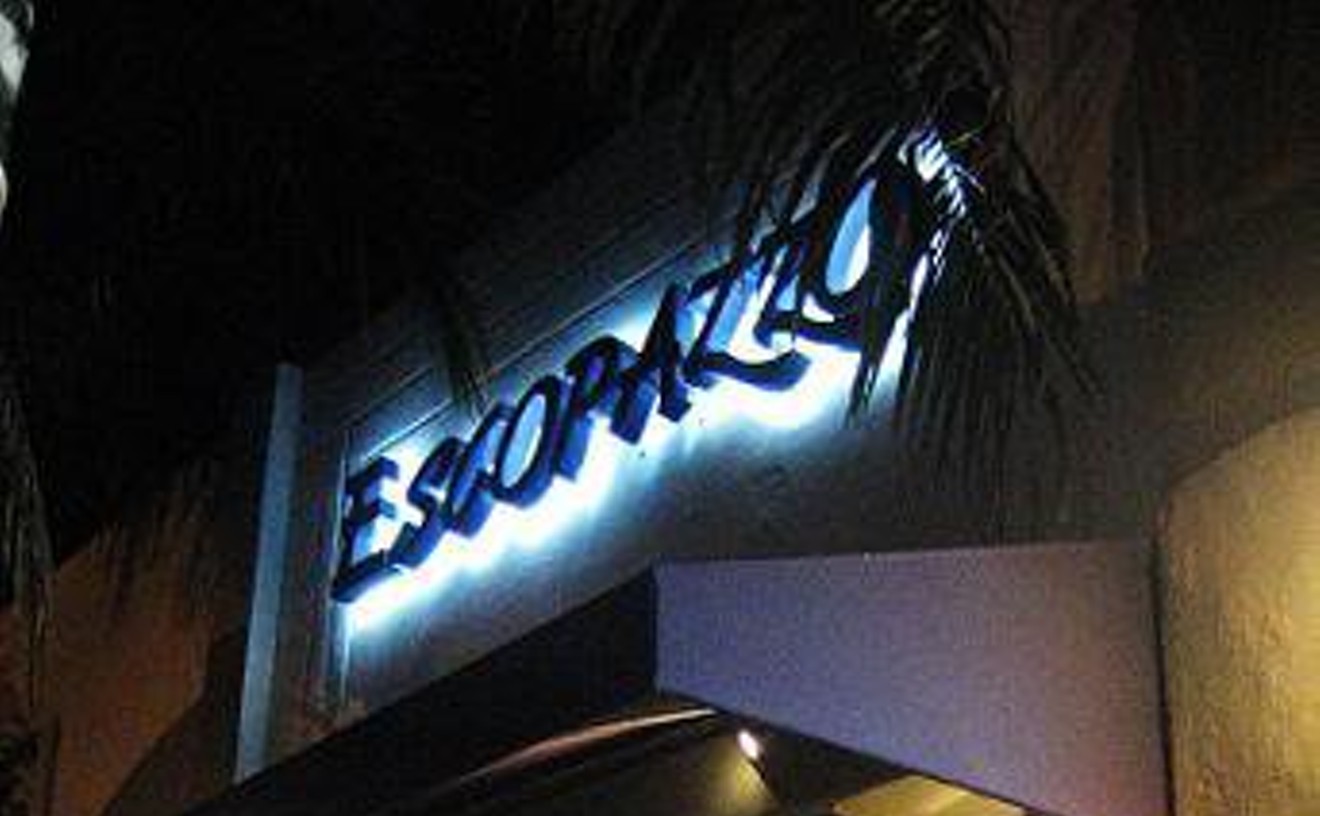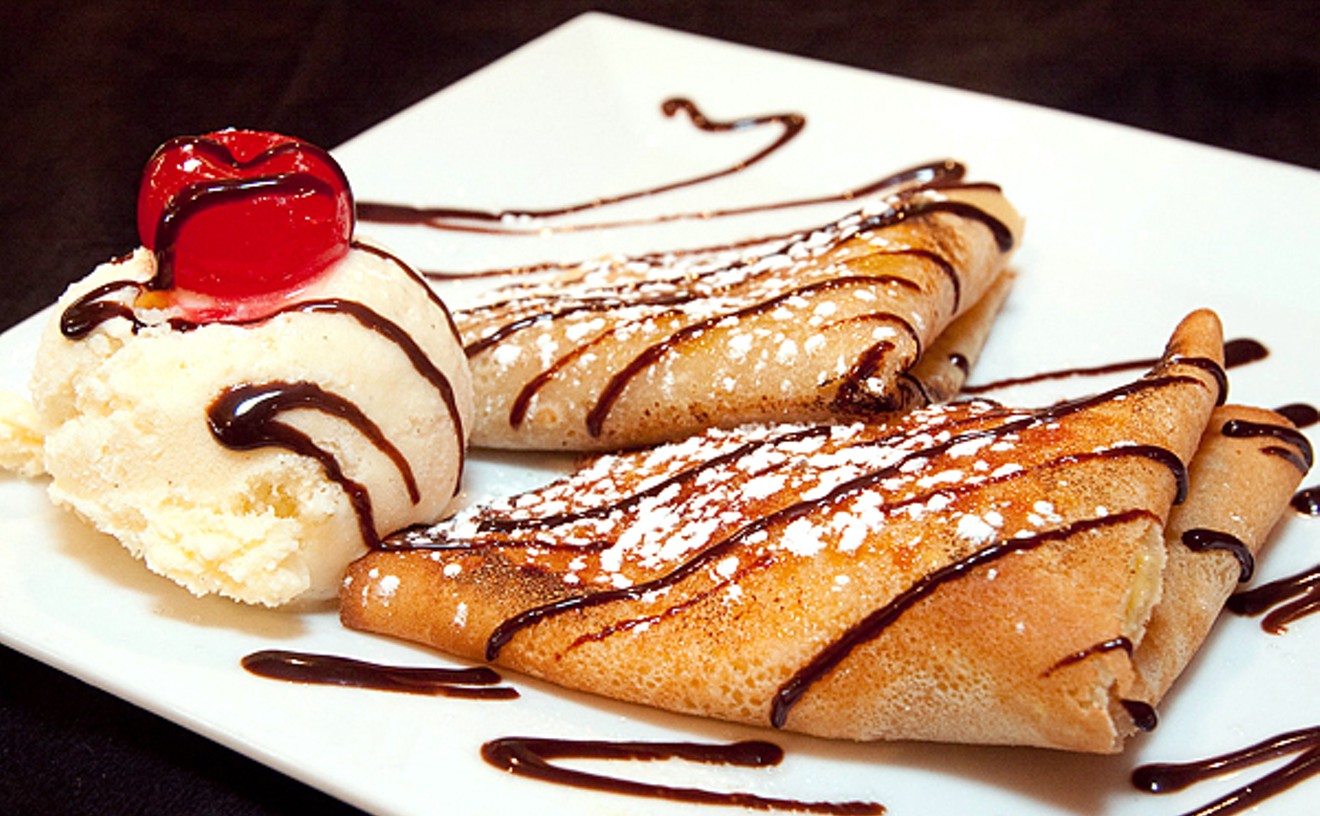If you're taking a health-conscious person to Escopazzo, by all means trumpet the rustic 90-seat restaurant's use of local, all-organic fruits, vegetables, and dairy products. Definitely mention the beef is grass-fed as well as hormone-and-antibiotic-free, and point out raw selections on the menu such as golden flaxseed pappardelle with mushrooms and pine nut "Parmigiano." Order a bottle of organic wine.
But if you're taking someone who just wants delectable Italian fare, no need to make a fuss about Escopazzo's more salubrious aspects. Let your companion enjoy smoked beef carpaccio, tagliatelle with Bolognese sauce, beef short ribs braised in Barbera wine, or espresso-dusted, American Kurobuta pork tenderloin stuffed with scamorza cheese, without any explanations. A starter of asparagus flan with fontina and provola cheeses, shiitake mushrooms, and white truffle oil is so luxuriously rewarding that your friend won't even notice it's vegetarian. Chef/owners Giancarla and Pino Bodoni have been producing contemporary Italian food with flair since 1993 (dinner, not lunch), but a seat at the table doesn't come cheap — pastas are in the upper $20 range, fish and meat entrées $30 to $58. You get what you pay for, though, whether or not you know what you're getting.













